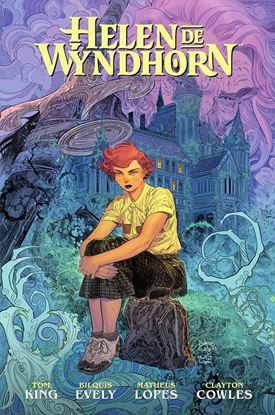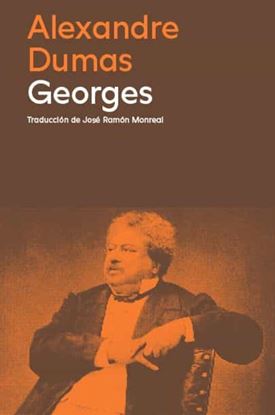

RIGODON. TRILOGIA NORTE III
Rigodón es, en pocas palabras, la historia patética de un hombre a la deriva...; el relato del viaje de Céline por Alemania en 1944, pocos meses antes del final de la Segunda Guerra Mundial, en un intento de llegar a Dinamarca, a Sigmaringen, donde se esconde el gobierno de Vichy. Lo acompañan el actor Robert Le Vigan, su esposa Lucette y su gato Bébert, y juntos pretenden recuperar el oro enterrado en el jardín de una amiga bailarina. Y, entretanto, con ricas descripciones de incendios y escombros, Céline entreteje vivencias y pensamientos: el desprecio por su editorial, las visitas inoportunas, su resentimiento por el encarcelamiento en Dinamarca y su punto de vista sobre los acontecimientos que se suceden a su alrededor. Publicada póstumamente, en 1969, Rigodón, libro al que Céline consagró los últimos meses de su vida, es la tercera y última parte de la autobiografía iniciada en 1957 con la sombría y alucinante fantasmagoría De un castillo a otro, a la que siguió Norte, novela de páginas enloquecidas y dantescas, publicadas ambas en esta misma colección.
1,995
1,496
HELEN DE WYNDHORN
Tras la trágica muerte de su padre, C.K. Cole, el apreciado escritor de literatura pulp y creador del popular personaje guerrero Othan, a Helen Cole la llaman de vuelta a la enorme e ilustre finca de su abuelo: la Casa Wyndhorn. Marcada por la muerte prematura de su padre, y perdida en un nuevo y extraño mundo, una Helen siempre abrazada a una botella de vino siembra el caos al llegar. Sin embargo, sus caóticas costumbres empezarán a suavizarse cuando descubra toda una vida de secretos ocultos en la miríada de salas y pasillos de la enorme mansión. Pues fuera de sus paredes, en el bosque, esperan las legendarias aventuras que antes había hallado en las historias de su padre.
1,995
1,496
DODSWORTH (DESENGAÑO)
Inédita hasta ahora en español, pese a que está considerada una de las grandes novelas del premio Nobel de Literatura Sinclair Lewis, "Dodsworth" enfrenta los modales y la moral de los estadounidenses con la de los europeos durante el primer tercio del siglo XX. Ambientada en la Europa de entreguerras, narra el viaje por Europa de Sam Dodsworth, un empresario diseñador de automóviles, y su esposa, Fran Voelker, seducida por la frivolidad de la decadente aristocracia del antiguo continente, lo que comienza a separar al matrimonio. A lo largo de un itinerario por Francia, Gran Bretaña, Italia, Austria, Hungría, Alemania e incluso España, la pareja se va distanciando paulatinamente. Él se convierte en un turista solitario, mientras ella se involucra cada vez más en la ajetreada vida social de las grandes familias, que ocultan su ruina entre bailes de salón. Llevada al cine en 1936 por William Wyler, con Walter Huston y Ruth Chatterton como protagonistas, la película logró siete nominaciones a los Óscars.
1,995
1,496
TEATRO (RAE)
Edición de Alberto del Río Nogueras.El volumen 19 de la BCRAE reúne la totalidad del teatro enciniano, formado por las ocho églogas incluidas en el Cancionero de 1496 y las seis piezas compuestas a partir de esa fecha.
La obra de Encina compendia y eleva a la excelencia la tradición dramática medieval, en la que injerta las perspectivas amorosas propias de la lírica cancioneril y de las ficciones sentimentales, acordes con el gusto palaciego del tiempo y refinadas con ciertos aires mitológicos durante su etapa italiana.
Nadie le discute el trono de los inicios de nuestra escena, aunque la posteridad lo olvidase y tuviese que esperar a la época de las vanguardias, al calor de su reivindicación como músico, para cautivar con las mismas armas literarias de sus comienzos: un estudiado primitivismo que logra, bajo disfraz pastoril, calar hondo en las conciencias.
Para establecer el texto crítico de la presente edición se ha consultado la totalidad de testimonios antiguos, algunos de ellos conservados en ejemplar único.
1,995
1,496
GEORGES
Georges es hijo de un mulato adinerado, natural de la Île de France (hoy Mauricio), con una tez tan clara que podría pasar por blanco. Tras crecer viendo cómo el valor de su padre se ve comprometido por un sentimiento de inferioridad, llegará a la madurez con la tenaz ambición de jurar venganza a los hombres blancos que lo despreciaron a él, a su padre y a tantos otros durante siglos. Descatalogada desde hace tiempo en España y traducida brillantemente por José Ramón Monreal, esta novela de trasfondo indudablemente autobiográfico, publicada originalmente en 1843, puede apreciarse ahora como nunca antes y sumarse a las grandes obras de un autor inmortal.
1,995
1,496














